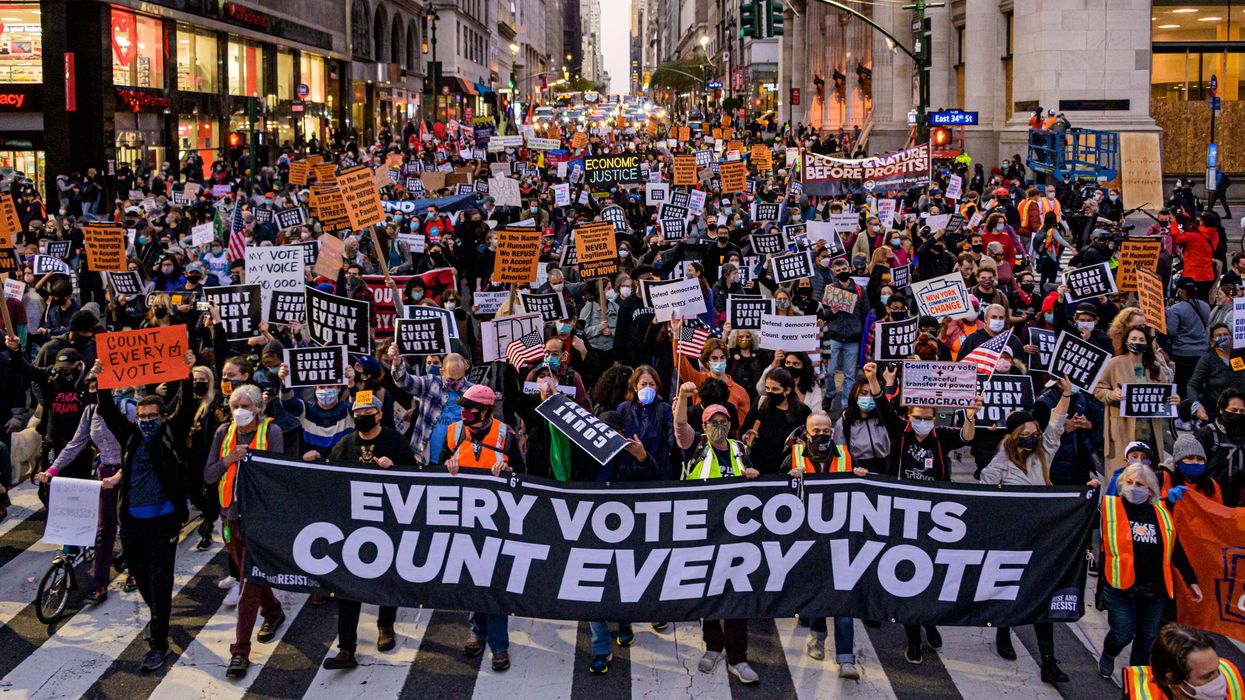Three in five Americans believe it's more important to ensure that all voters get to vote than it is to make sure nobody who's ineligible casts a ballot, a new poll finds, although there's an enormous partisan split on those priorities.
The same survey, however, revealed a solidly bipartisan degree of confidence among three-quarters of Americans that elections in their own states are being run fairly and securely.
The results, out Tuesday from NBC News, are the latest evidence of the complex and sometimes polarized views the electorate holds about the bedrock institution of democracy.
While 87 percent of Democrats and 65 percent of independents say "making sure that everyone who wants to vote can do so" is a top priority, 77 percent of Republicans say "making sure that no one votes who is not eligible to vote" is more important.
That fundamental disagreement, of course, reflects the continued partisan divide over the integrity of the 2020 election, fueled by the unprecedented and unfounded allegations by Donald Trump that his second term as president was stolen by fraud. His false allegations have fueled the drive by Republican legislators around the country to enact stricter voting laws that Democrats see as designed to suppress the vote — particularly targeting people of color.
As those bills keep advancing, though, 59 percent of Republicans — along with 85 percent of Democrats and 81 percent of independents — say they are confident their states can already administer elections where everyone eligible may cast a ballot and the results are tabulated accurately.
But the poll did reveal a sharp GOP split based on where people live. In states Trump carried, 76 percent of Republicans view their own elections as free and fair. In states carried by President Biden, that same number plunged to 39 percent.
The poll was conducted by telephone April 17-20 and has a 3.1 percentage point margin of error.




















Trump & Hegseth gave Mark Kelly a huge 2028 gift